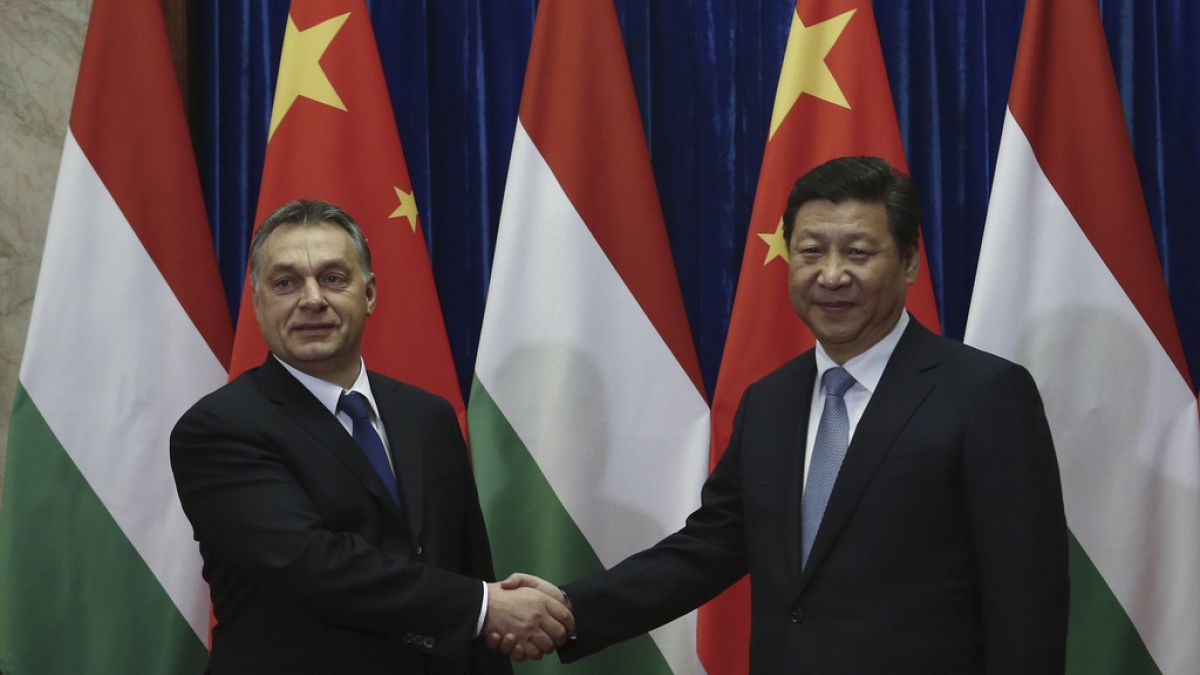Hungarian Prime Minister Viktor Orbán recently made a surprise visit to China as part of what he dubbed his “Peace mission 3.0”. This visit comes after Orbán’s meetings in Ukraine and Russia to discuss potential peace settlements in Ukraine. Upon his arrival in China, he was warmly welcomed by Chinese Vice Minister of Foreign Affairs Hua Chunying and other officials. Orbán also met with Chinese President Xi Jinping, highlighting the importance of the involvement of key world powers, including the United States, the European Union, and China, in ending the conflict in Ukraine.
Orbán’s trip to Moscow and Kyiv in the previous week stirred controversy as he proposed an immediate ceasefire between Russia and Ukraine. While the Hungarian Prime Minister is known for his close ties with Russian President Vladimir Putin, he has been criticized for hindering EU efforts to support Kyiv and impose sanctions on Moscow. Despite the backlash from Ukraine and other European leaders, Orbán defended his trip to Moscow as an attempt to engage in diplomatic dialogue with all sides involved in the conflict. He asserted that Hungary is gradually becoming the only European nation capable of facilitating communication between various parties.
The growing relationship between Hungary and China was a focal point of Orbán’s visit, following Chinese President Xi Jinping’s visit to Budapest a couple of months ago. During Xi’s trip to Hungary, the two countries signed agreements to enhance their economic and cultural cooperation. China has significantly invested in Hungary and views the country as a strategic partner within the European Union. Notably, Hungary announced that China’s BYD, one of the world’s leading electric vehicle manufacturers, will establish its first European EV production plant in southern Hungary. This move could potentially disrupt the competitiveness of Europe’s automotive industry.
Orbán’s efforts to advocate for peace in Ukraine align with his longstanding position on resolving conflicts through diplomatic channels. While he has expressed support for ending hostilities in Ukraine, he has not clarified his stance on the territorial integrity and security of the country. The Hungarian Prime Minister’s complex relationship with both Russia and the EU has raised concerns among European leaders about the potential implications of his diplomatic initiatives. However, Orbán believes that Hungary’s unique position allows him to engage with all parties involved in the conflict, emphasizing the importance of dialogue and negotiation in achieving sustainable peace.
In conclusion, Viktor Orbán’s visit to China marks another chapter in his ongoing diplomatic endeavors to promote peace in Ukraine and strengthen Hungary’s ties with key global players. By engaging with leaders in Moscow, Kyiv, and Beijing, Orbán seeks to leverage Hungary’s strategic position to facilitate dialogue and potentially influence the resolution of the conflict in Ukraine. As Hungary continues to navigate its relationships with Russia, the EU, and China, Orbán’s diplomatic initiatives underscore the country’s growing role on the international stage. The success of Orbán’s “Peace mission 3.0” remains to be seen, but his proactive approach to mediating conflicts demonstrates Hungary’s commitment to promoting stability and cooperation in the region.











